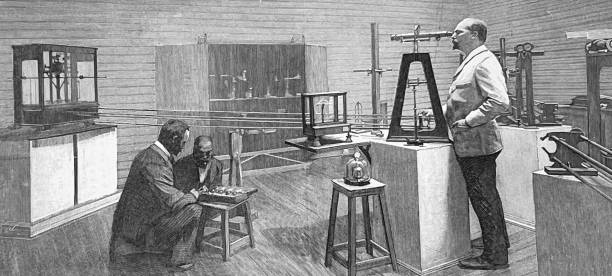Understanding the essential role of health and human services in society
HEALTH AND HUMAN SERVICES

Health and human services are vital components of a functioning society. From providing access to medical care to supporting vulnerable populations, these services are essential in ensuring the well-being of individuals and communities. In this blog post, we will explore the role of health and human services in society, including their importance and how they can be improved. We will also examine how these services are delivered to those in need, and how they work together to create a stronger and healthier society.
Defining health and human services
Health and human services encompass a wide range of programs and initiatives that aim to promote the well-being of individuals and communities. These services are designed to address the various needs and challenges faced by individuals in society, with a focus on improving access to healthcare, supporting vulnerable populations, and ensuring overall wellness.
Health services, as the name suggests, are primarily concerned with the provision of medical care. This includes services such as hospitals, clinics, and doctors’ offices, where individuals can receive diagnosis, treatment, and prevention of diseases. Additionally, health services also encompass preventive measures, such as vaccinations and health education, to promote healthy behaviors and reduce the risk of illness.
On the other hand, human services focus on supporting the overall well-being and social welfare of individuals. This includes programs that provide assistance to vulnerable populations, such as the elderly, people with disabilities, and those experiencing homelessness. Human services aim to meet the basic needs of individuals and help them achieve a better quality of life. Examples of human services include food assistance programs, housing support, and counseling services.
Overall, health and human services play a vital role in society by addressing the diverse needs of individuals and communities. They aim to ensure that everyone has access to essential healthcare services, support vulnerable populations, and promote overall wellness. By providing these services, societies can improve the overall quality of life for their citizens and create a more equitable and inclusive society.

The history and evolution of health and human services
Throughout history, the concept of health and human services has evolved and transformed to meet the changing needs of society. In ancient civilizations, the provision of medical care and social welfare was often left to religious or spiritual institutions. These institutions would care for the sick and provide support to vulnerable populations. However, as societies grew and became more complex, so did the need for organized systems of health and human services.
The origins of modern health and human services can be traced back to the early 19th century, when advancements in medical science and the rise of industrialization led to increased urbanization and population growth. These developments brought with them new challenges, such as the spread of infectious diseases and the rise of poverty and inequality. In response, governments and philanthropic organizations began to establish public health systems and social welfare programs to address these issues.
One notable example is the establishment of the National Health Service (NHS) in the United Kingdom in 1948. This revolutionary healthcare system provided free medical care to all citizens, regardless of their ability to pay. It was a groundbreaking development in the provision of health services and served as a model for many other countries around the world.
Over the years, health and human services have continued to evolve in response to societal changes and advancements in technology. The advent of the internet and digital communication has opened up new possibilities for delivering healthcare services remotely, while the recognition of the social determinants of health has led to a greater emphasis on addressing underlying social and economic factors that impact well-being.
Today, health and human services encompass a wide range of programs and initiatives that aim to promote the overall health and welfare of individuals and communities. From healthcare systems and social welfare programs to community-based organizations and non-profit agencies, these services work together to ensure that everyone has access to essential care and support.
As we look to the future, the evolution of health and human services will likely continue as new challenges and opportunities emerge. Whether it’s through advancements in medical technology, innovative approaches to delivering care, or a greater focus on preventative measures, the goal remains the same – to create a healthier and more equitable society for all.

The importance of health and human services in society
Health and human services play a crucial role in society, contributing to the overall well-being and quality of life for individuals and communities. These services are essential in ensuring that everyone has access to essential healthcare, support systems, and resources to lead a healthy and fulfilling life.
First and foremost, health and human services are vital for promoting public health and preventing the spread of diseases. Through healthcare systems, vaccinations, and health education, these services help to reduce the risk of illness and protect individuals and communities from health threats. Additionally, by providing access to medical care, health services play a key role in diagnosing and treating diseases, improving overall health outcomes, and extending life expectancy.
Furthermore, human services are instrumental in supporting vulnerable populations and addressing social determinants of health. Programs such as food assistance, housing support, and counseling services help individuals facing financial hardship, homelessness, mental health issues, and other challenges to access the resources and support they need. By providing these essential services, health and human services help to reduce health disparities, promote social justice, and create a more equitable society.
Beyond the individual level, health and human services also contribute to the economic and social development of communities. By ensuring that individuals have the necessary resources and support to lead healthy and productive lives, these services contribute to a stronger workforce and increased economic productivity. They also promote social cohesion and community resilience, fostering a sense of belonging and support within society.
In summary, health and human services are vital components of a functioning society. They contribute to the overall well-being of individuals and communities by providing access to essential healthcare, supporting vulnerable populations, and addressing social determinants of health. By recognizing and valuing the importance of these services, we can create a society that is healthier, more equitable, and better equipped to face the challenges of the future.

Different types of health and human services
Health and human services encompass a wide range of programs and initiatives that aim to meet the diverse needs of individuals and communities. These services are designed to address various aspects of health and well-being, providing support and resources to promote a healthier society.
One important type of health and human service is healthcare. This includes medical care provided by hospitals, clinics, and doctors’ offices, where individuals can receive diagnosis, treatment, and preventive care for their physical health. Healthcare services also encompass mental health care, ensuring that individuals have access to the resources and support they need to maintain their mental well-being.
Another type of health and human service is social welfare programs. These programs aim to provide support and assistance to vulnerable populations, such as the elderly, people with disabilities, and those experiencing homelessness. Social welfare programs include food assistance programs, housing support, and financial assistance, helping individuals meet their basic needs and improve their quality of life.
Community-based organizations and non-profit agencies also play a crucial role in health and human services. These organizations provide a range of services, such as counseling, support groups, and educational programs. They work directly with individuals and communities, offering personalized care and support to address specific needs and challenges.
Additionally, preventative services are an important component of health and human services. These services focus on promoting healthy behaviors, preventing diseases, and improving overall wellness. Examples include vaccinations, health education campaigns, and screenings for various health conditions.
Overall, there is a diverse range of health and human services available, each targeting different aspects of well-being and addressing specific needs. By providing these services, societies can ensure that individuals have access to essential care, support vulnerable populations, and promote overall wellness. It is through the collective effort of these services that a stronger and healthier society can be created.

Challenges faced by health and human services
Health and human services play a crucial role in society, but they also face various challenges in their efforts to support individuals and communities. One major challenge is the increasing demand for services. As populations grow and age, the need for healthcare and support services increases. This puts strain on resources and can lead to long wait times, limited access to care, and overwhelmed staff.
Another challenge is the limited funding available for health and human services. Many programs rely on government funding, which can fluctuate and be subject to budget cuts. This lack of funding can result in reduced services, inadequate staffing levels, and difficulties in providing comprehensive care to all who need it.
Additionally, health and human services often face disparities and inequalities in access and delivery. Vulnerable populations, such as low-income individuals, minorities, and those in rural areas, may face barriers to accessing healthcare and support services. These disparities can be due to factors such as geographic location, language barriers, cultural differences, or lack of transportation.
Another challenge is the need for coordination and integration of services. Health and human services often involve multiple organizations and agencies working together to provide comprehensive care. However, communication and coordination can be complex and challenging, leading to gaps in care and fragmented services.
Lastly, advancements in technology present both opportunities and challenges for health and human services. While technology can improve access to care and enhance communication, it also requires investment and training to implement effectively. Additionally, there are concerns about privacy and data security when utilizing digital health records and Telemedicine.

The future of health and human services
As we look to the future, the landscape of health and human services is constantly evolving. Advancements in technology, changes in societal needs, and shifting priorities all play a role in shaping the future of these vital services.
One area that holds great promise for the future of health and human services is the integration of technology. The use of medicine and digital health records has already shown great potential in improving access to care and enhancing communication between patients and healthcare providers. As technology continues to advance, we can expect even more innovative solutions to emerge, such as remote monitoring devices, artificial intelligence-assisted diagnostics, and virtual reality therapy. These advancements will not only improve the efficiency and effectiveness of healthcare delivery but also empower individuals to take control of their own health and well-being.
Another key aspect of the future of health and human services is the increasing emphasis on preventative care. As we shift our focus from treating illness to preventing it, we can expect to see more investment in health promotion, education, and early intervention programs. This shift towards preventative care has the potential to not only improve health outcomes but also reduce healthcare costs in the long run.
Additionally, there will likely be a greater recognition of the social determinants of health in the future. We know that factors such as income, education, and access to resources play a significant role in shaping health outcomes. Therefore, we can expect to see more integrated approaches that address these underlying social and economic factors to promote health and well-being.
The future of health and human services also lies in the power of collaboration and partnership. As the complexity of health issues continues to grow, it is becoming increasingly important for different sectors and organizations to work together towards common goals. By fostering collaboration between healthcare providers, community-based organizations, and government agencies, we can create a more integrated and comprehensive approach to health and human services.

In conclusion, the future of health and human services holds great promise. Through the integration of technology, a focus on preventative care, a recognition of social determinants of health, and increased collaboration, we can create a healthcare system that is more accessible, efficient, and patient-centered. By investing in the future of health and human services, we can ensure a healthier and more equitable society for generations to come.




Many people use their lotteries to improve money for valuable initiatives that improve education, general public infrastructure and sociable services.
Once you have fun with the lottery, you’re assisting to account these programs when you account your own dreams of winning
it big. Have fun and all the best!